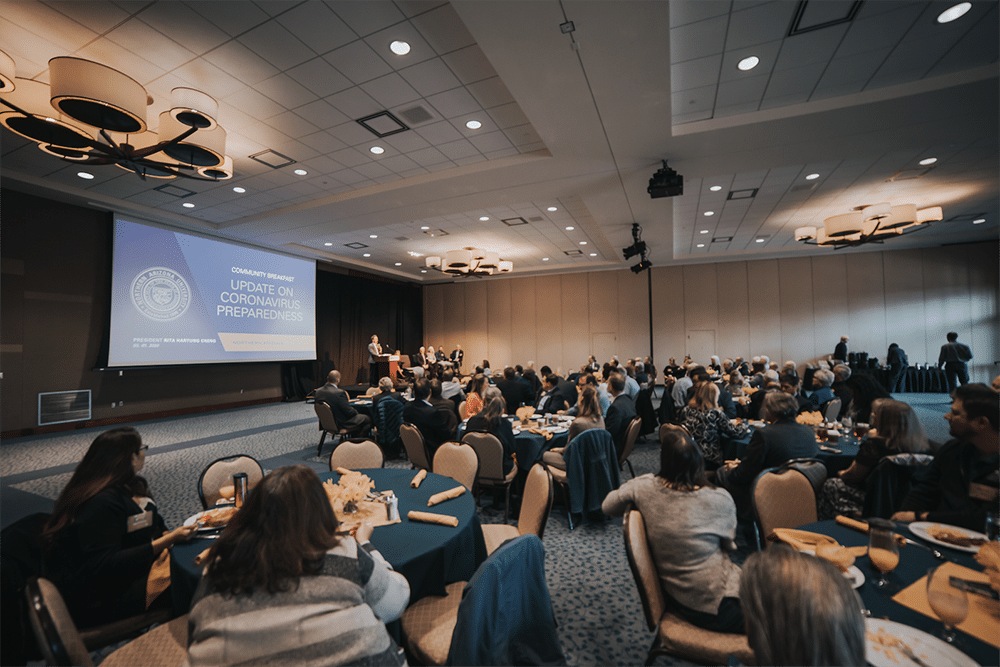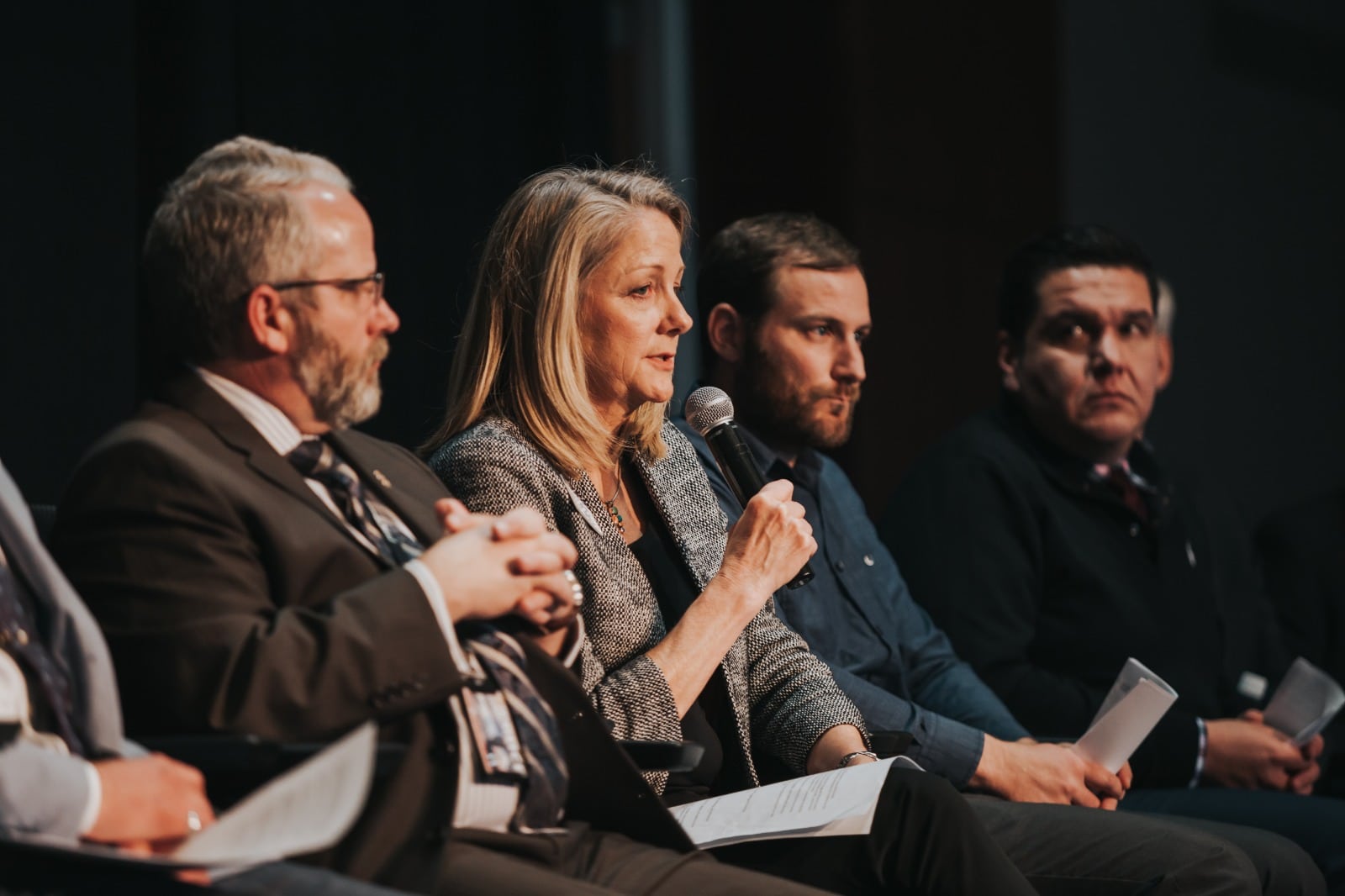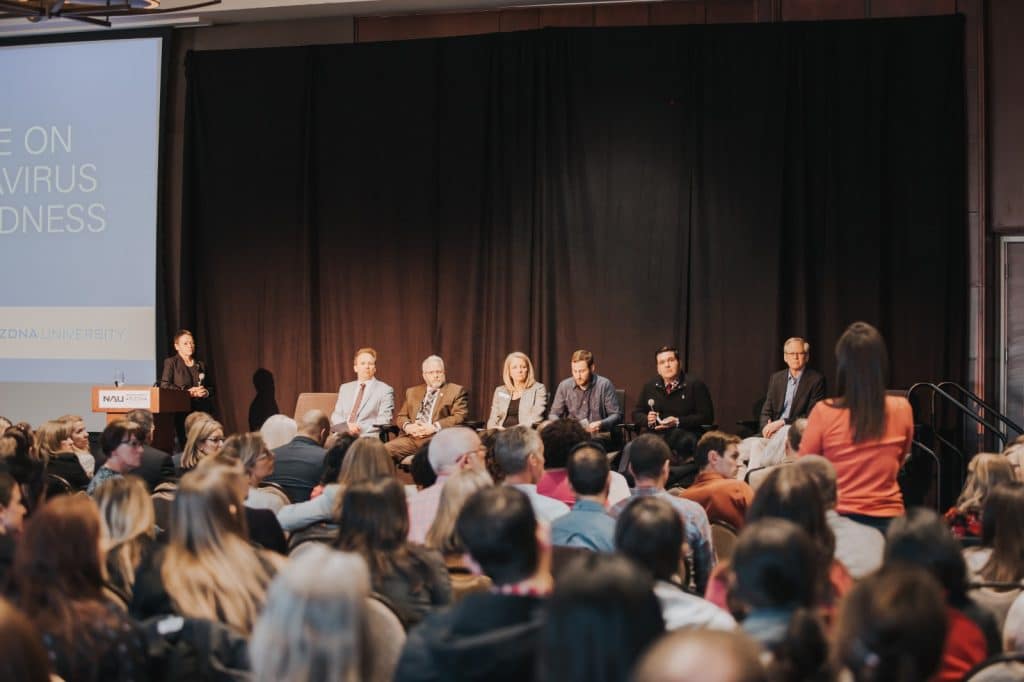As coronavirus (COVID-19) diagnoses become more widespread, Northern Arizona University is focused on protecting its campus communities against the disease and concerns surrounding health and safety.

This week, President Rita Cheng gathered a panel of experts from NAU and local health organizations to share the most current information regarding the disease, discuss protocols and address questions.
The Campus Forum was held Tuesday; a broadcast can be found online. Another forum was held at NAU’s Community Breakfast, a gathering of NAU, local community leaders, and business community members held once per semester.
NAU has ramped up communications campus wide, including cautionary messaging regarding spring break travel and updates to parents. NAU is strongly urging individuals to follow guidelines from the Centers for Disease Control and Prevention (CDC), and not travel to areas with active community transmission of COVID-19, and countries with Level 1 (Hong Kong), 2 (Japan) and 3 (China, Iran, Italy and South Korea) warnings.
NAU is following new national travel and self-isolation guidelines. The CDC recommends a 14-day self-isolation period for all travelers who traveled to Level 2 or 3 countries. Faculty, staff, students and other visitors from Level 2 or 3 countries should self-isolate at their home or an off-campus residence for 14 days and monitor their symptoms before returning to campus. If symptoms occur, individuals should seek medical attention.
NAU also launched an internal COVID-19 taskforce to address preparedness across functional areas at NAU, including course delivery, housing, dining, health services, facilities and operations. Efforts include launching a webpage to serve as a centralized resource for all information and communications related to COVID-19. Information can be found on NAU’s Coronavirus webpage.
“It is of utmost importance to us that all the members of our campus community know what actions we are taking and what you can personally do to help slow the spread of this disease,” Cheng said. “We are doing everything we can to keep our campus communities informed and safe, including sharing messages in public areas, residence halls, dining areas and classrooms.”

Daniel Palm, associate vice president for the Center for International Education, said his staff is monitoring areas around the world where NAU students are traveling and making decisions about returning students to the United States or transferring them to other international programs.
Julie Ryan, executive director of NAU’s Campus Health Services, spoke about the importance of practicing health hygiene as the best step to keep yourself and others safe.
“Get a flu shot, wash your hands, avoid touching your eyes, nose and mouth, avoid contact with others who are sick, cover your mouth when coughing or sneezing, stay home when you are sick and clean and disinfect objects and surfaces.”
She advised anyone with COVID-19 symptoms to call their provider ahead of time so staff can prepare to receive them.
Dr. Paul Keim, executive director of the Pathogen Microbiome Institute, said younger, healthy people can become infected and not show symptoms but still transmit the disease.
“If you don’t know, you can’t control it,” he said, which is why it’s so important to practice good hygiene, wash hands and avoid touching your face and mouth.
Coconino County Health Services Epidemiologist Matt Maurer spoke about his organization’s role in tracking and monitoring the illness.
“We work with many community partners investigating, recording and helping to prevent the spread of the disease,” he said, adding there is great focus on travel and who has been potentially exposed.
NAU emergency manager Robert Church said the university has been monitoring the spread of the disease since January, reviewing preparedness plans and updating them where needed.
“There is a great focus on supply chain management and how we continue services at the university as things evolve.”
For the most up to date information, visit NAU’s COVID-19 website.



